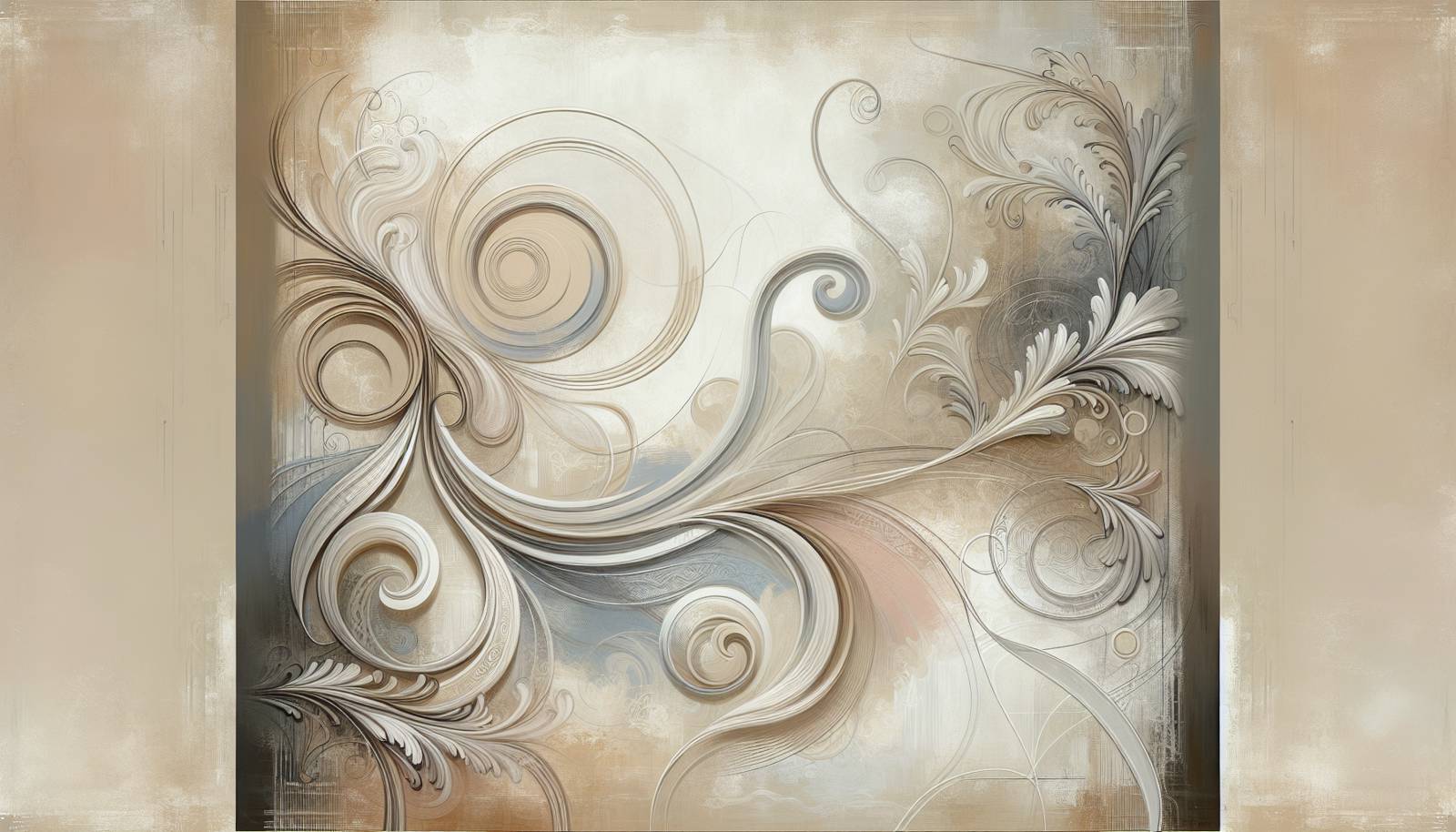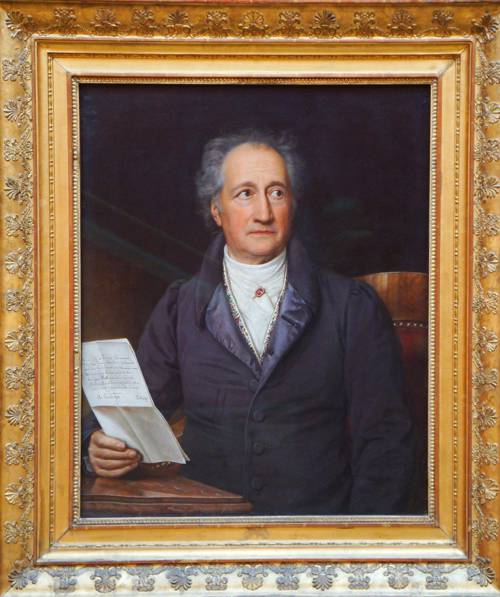
FAQ About Johann Wolfgang von Goethe

Who was Johann Wolfgang von Goethe?
Johann Wolfgang von Goethe was a renowned German writer and statesman born on August 28, 1749, in Frankfurt, Germany. He is considered one of the most important figures in Western literature. Goethe is best known for his plays, novels, and poetry, including the epic "Faust," which blends elements of Goethe's interests in literature, art, science, and philosophy. He was a leading figure in the Sturm und Drang literary movement, which emphasized emotion and individualism.

What is Johann Wolfgang von Goethe's most famous work?
Johann Wolfgang von Goethe's most famous work is undoubtedly "Faust," a dramatic poem in two parts. The story revolves around the character Faust, a scholar who makes a pact with the devil, Mephistopheles, in a quest for ultimate knowledge and worldly pleasures. "Faust" is considered one of the greatest achievements in German literature and is known for its exploration of themes such as ambition, sin, redemption, and the human condition.

What literary movement was Goethe associated with?
Goethe was closely associated with the Sturm und Drang ("Storm and Stress") literary movement, which emerged in Germany during the late 18th century. This movement was characterized by its focus on individual subjectivity and emotional expression, counter to the rationalism and strict forms of the Enlightenment period. Goethe's early works, like "The Sorrows of Young Werther," are emblematic of this movement.

How did Goethe influence the Sturm und Drang movement?
Goethe significantly influenced the Sturm und Drang movement through works that emphasized emotion, individuality, and nature. His novel "The Sorrows of Young Werther," published in 1774, became a seminal work of the movement and inspired a wave of Werther-mania across Europe. The novel's portrayal of intense, unbridled emotion became a hallmark of Sturm und Drang literature, paving the way for Romanticism.

What themes are prevalent in Goethe's work?
Goethe's works frequently explore themes such as the tension between reason and emotion, the search for knowledge and meaning, the nature of human existence, love, and the individual's relationship to society and nature. In "Faust," these themes are evident in the character's existential quests and moral dilemmas. Goethe's writing often reflects his interest in philosophy, science, and the human spirit.

What is 'The Sorrows of Young Werther' about?
"The Sorrows of Young Werther" is a novel by Goethe, first published in 1774. It is written in the form of letters from the protagonist, Werther, to his friend Wilhelm. The story details Werther's intense, unrequited love for Charlotte, a woman engaged to another man. The novel explores themes of passion, despair, and the constraints of society, ultimately leading to Werther's tragic end. The novel had a profound impact on European readers and is regarded as a key work of the Sturm und Drang movement.

Did Goethe have interests outside of literature?
Yes, Goethe had a wide range of interests beyond literature. He was deeply engaged in scientific studies, including botany, anatomy, mineralogy, and optics. Goethe's scientific endeavors included the study of plant morphology and the theory of colors, where he presented ideas challenging Newton's theories of color. Additionally, he served as an active statesman, holding various political positions in the Weimar court.

How did Goethe contribute to science?
Goethe made several contributions to science, particularly in the fields of botany and color theory. He published "Metamorphosis of Plants," where he proposed theories about plant morphology, suggesting that all plant forms are variations of a single vegetal archetype. Goethe also developed a controversial color theory in his work "Theory of Colours," in which he critiqued Isaac Newton's color theory and emphasized the psychological and perceptual aspects of color experience.

What is Goethe's 'Faust' about?
"Faust" is a dramatic poem by Goethe that tells the story of Dr. Faust, a scholar dissatisfied with life's limitations and who enters a pact with the devil, Mephistopheles, in exchange for unlimited knowledge and worldly pleasures. The work explores themes of ambition, morality, redemption, and the nature of the soul. Goethe spent much of his life working on "Faust," which was published in two parts, with the first released in 1808 and the second, posthumously in 1832.

What language did Goethe write in?
Johann Wolfgang von Goethe wrote primarily in German. His works, including novels, poems, and plays, are central to German literature and have been translated into numerous languages, gaining an international audience. His sophisticated use of the German language has earned him a lasting legacy in literature.

Was Goethe involved in politics?
Yes, Goethe was actively involved in politics. He served as a statesman in the court of Weimar, performing various administrative duties and contributing to state management and cultural development. Goethe's political career included tasks such as overseeing mining and roads and promoting cultural and educational initiatives. His experience as a statesman informed his literary works, which often reflected on societal and political themes.

How did Goethe influence German literature?
Goethe's influence on German literature is immense and enduring. As a leading figure of the Sturm und Drang movement, he helped shape the course of modern German literature, transitioning it from Enlightenment ideals to Romanticism. His works introduced new forms of poetic expression, thematic depth, and psychological insight. Goethe's wide-ranging interests and innovative thinking inspired future German writers and contributed to the development of a distinctly German literary identity.

What philosophical ideas are found in Goethe's writings?
Goethe's writings are infused with philosophical ideas, integrating thoughts on nature, humanism, the balance between reason and emotion, and the quest for self-knowledge and meaning. His works often explore the concept of "Weltanschauung," or worldview, highlighting the interplay between subjective experience and the objective world. In "Faust," for instance, he examines the nature of human desire and the longing for transcendence. Goethe combined his literary talents with profound philosophical reflections, offering insights into the human condition.

Did Goethe receive any accolades during his lifetime?
During his lifetime, Johann Wolfgang von Goethe was widely celebrated across Europe for his literary contributions. Although formal awards as we know them today were not as common in his era, Goethe's influence and reputation were remarkable. He was esteemed by fellow intellectuals, including writers and philosophers, and served in prominent positions, indicating the significant respect he commanded. His works were both commercially successful and critically acclaimed, ensuring his legacy as one of the foremost writers of his time.

How did Goethe's work influence other writers?
Goethe's work had a profound influence on countless writers, both in Germany and internationally. His innovative approaches to storytelling, character development, and thematic exploration inspired figures like Friedrich Schiller, who collaborated with Goethe, as well as Romantic writers such as Lord Byron and Mary Shelley. Goethe's blend of art, science, and philosophy also impacted 19th-century thinkers, contributing to discussions in fields beyond literature, including psychology and aesthetics.

What was Goethe's approach to art and aesthetics?
Goethe had a holistic approach to art and aesthetics, believing that art should capture the profound truths of nature and human experience. He emphasized the harmony and balance in art, reflecting the unity of nature and the subjective human soul. Goethe's concept of "Steigerung," or intensification, describes art as a medium that intensifies perceptions, emotions, and experiences. His aesthetic philosophy influenced later thinkers and artists, fostering a deeper appreciation for the interconnectedness of artistic and natural beauty.

What role did Goethe play in the Romantic movement?
Although Goethe started his career during the Sturm und Drang movement, which paved the way for Romanticism, he had a complex relationship with the Romantic movement itself. Romanticism emerged partly as an extension of the principled emotion in Sturm und Drang, yet Goethe eventually distanced himself from its excessive emotionalism and idealism. However, his works, particularly 'Faust,' continued to be pivotal for Romantics, who admired the depth of his emotional and psychological portrayals and his exploration of the sublime.

What was Goethe's approach to scientific exploration?
Goethe approached scientific exploration with a focus on holistic and intuitive observation, contrasting with the analytical methods of his contemporaries. He believed in understanding nature through direct observation and experience. Goethe's scientific methodology, known as "Goethean science," emphasizes the qualitative study of phenomena, seeking to uncover the underlying unity and patterns in nature. His work in botany and color theory reflects this philosophical and methodological integrative approach.

How did Goethe's personal life influence his writing?
Goethe's personal life deeply influenced his writing, providing both inspiration and thematic material. His passionate and sometimes tumultuous love affairs, such as his infatuation with Charlotte Buff that inspired "The Sorrows of Young Werther," are reflected in his exploration of human emotion and relationships. His extensive travels, particularly in Italy, also enriched his appreciation for classical art and beauty, profoundly affecting the themes and imagery in his work. Goethe's personal experiences provided a rich foundation for his literary expression.

What impact did Goethe have on cultural and scientific thought?
Goethe's impact on cultural and scientific thought extends beyond literature. His explorations in science challenged conventional methodologies and contributed to a broader understanding of natural phenomena, particularly in areas like botany and the perception of color. Culturally, his integration of scientific knowledge with artistic expression paved the way for interdisciplinary approaches that connect the arts, humanities, and sciences. Goethe's pioneering spirit and intellectual curiosity influenced generations of thinkers and contributed to the development of a more holistic understanding of human and natural worlds.
